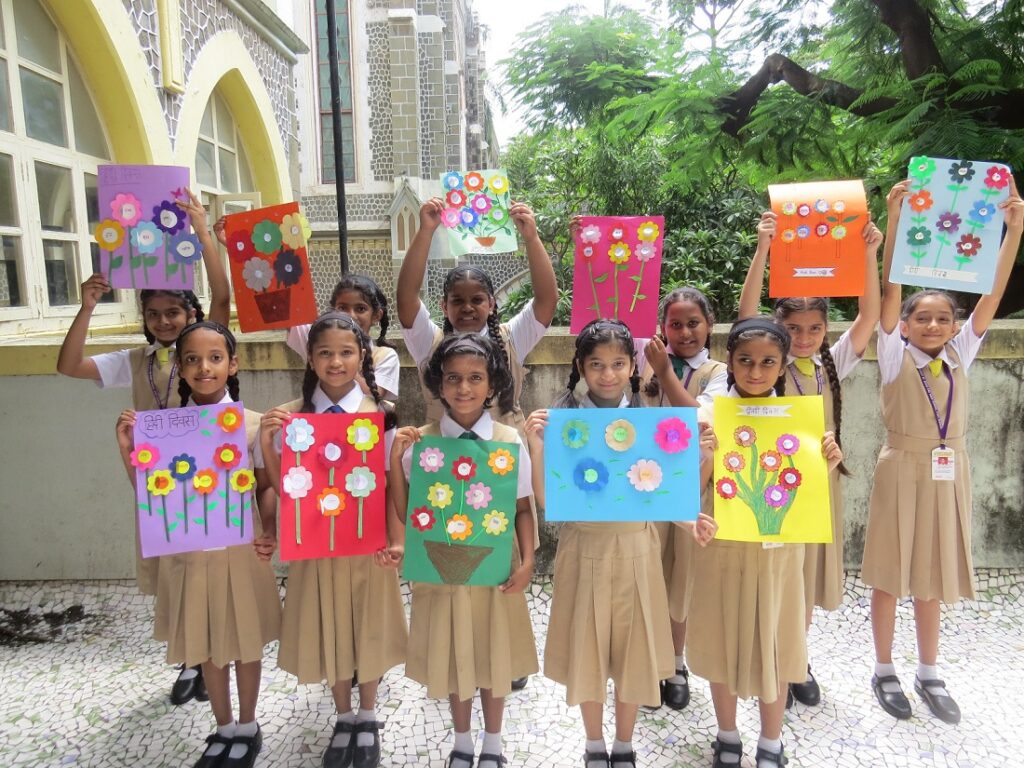Introduction
India, a land of rich cultural diversity, boasts a plethora of languages spoken across its vast expanse. Hindi language is widely spoken in India and Nepal. Despite the facts that around 57% Indian population Speaks Hindi, It is not a national language of India, However it is declared as official language of India by Indian Government as part of other 22 official language. Being widely spoken language in India the question looms – do Indians really feel ashamed when speaking the Hindi language?
Table of Contents
History and Development of Hindi Language In India
Hindi’s story unfolds across different epochs, starting with the Pre-Modern period (10th to 18th centuries). Back then, it was mainly spoken in northern and central India, heavily influenced by Sanskrit. The earliest form, Khari Boli dialect, originated in Delhi.
Moving into the Modern period (19th to mid-20th centuries), British colonial rule standardized Hindi as India’s official language, promoting literacy. The Hindi script underwent reforms, embracing Devanagari.
Post-Independence (mid-20th century to present) saw Hindi becoming India’s official language in 1947. It evolved with diverse regional dialects, becoming a widely spoken global language.
Importance of Hindi
According to surveys Hindi is the 3rd most spoken language in the world after English and Mandarin. Around 615 million people of the world speaks Hindi.

Delving into the historic evolution of Hindi provides valuable insights into the world’s oldest religious and literary collection. For those who want to explore such Indian rich culture, a focused exploration of Hindi is not just a symbol of respect but an enriching endeavor.
India is influential player in global politics and arts. As India’s influence expands, Hindi becomes increasingly vital on both the political and artistic stages.
Surprisingly, India boasts one of the world’s largest and most successful film industries. Its cinema, with a unique flavor, has made substantial contributions to global filmmaking. Exploring Hindi or its blend, Hinglish, opens the door to a plethora of films that have not only shaped Indian culture but have also left a lasting impact worldwide.
India is a growing global economy with a large skilled population. Many multinational companies outsource work to India, emphasizing the importance of learning Hindi as language serves a crucial role in connecting with people.
For those eager to embark on a Hindi language journey, consider exploring the popular Hindi language books to kickstart your learning experience.

Why Indians feel ashamed speaking Hindi
If we talk in summary, In India specially in north India, people linked your status with the language spoken by you. If you are speaking English, you are considered as highly educated person.
We will discuss in details other factors also that played vital role to create such mindset in Indian people for Hindi Language
1. Media Influence and Language Stereotypes
Hindi characters in movies or TV shows are often depicted using exaggerated accents or colloquialisms for comedic effect. This portrayal reinforces stereotypes, perpetuating the idea that speaking Hindi is associated with backwardness or lack of sophistication.

2. Social Stigma and Regional Variations
In some urban settings, individuals may feel compelled to converse in English to conform to perceived social norms, even in casual or familial settings. This pressure to prioritize English over Hindi contributes to the social stigma surrounding the latter.
Read more Healing Mudras in Indian Hand Gestures
3. Education System and Language Discrimination
The medium of instruction in schools and the approach to bilingual education also play a crucial role. Some schools may enforce strict English-only policies, penalizing students for conversing in Hindi. This not only hampers language development but also instills a sense of shame in students for expressing themselves in their mother tongue.

4. Globalization and Language Insecurity
Globalization has ushered in both opportunities and challenges for languages. Exploring the impact of global exposure on Hindi speakers sheds light on the evolving dynamics of language confidence.

For example With the rise of multinational companies, there’s a perception that proficiency in English enhances employability. This belief can lead individuals to downplay their Hindi proficiency in professional settings, contributing to a sense of insecurity.
5. Cultural Identity and Language Disconnect
Modernization has brought about a disconnection between language and cultural identity. Understanding this disconnect is vital for comprehending the reasons behind language shame.
For example Younger generations growing up in urban environments may consume more globalized media in English, leading to a dilution of their cultural ties to Hindi. This disconnect can result in a diminished sense of pride in speaking the language.
6. Economic Opportunities and Language Choice
Language choices significantly impact economic opportunities. Analyzing the link between language proficiency and job prospects uncovers the economic implications of language shame.

For example Job advertisements often prioritize English proficiency, potentially excluding qualified individuals who are proficient in regional languages like Hindi. This bias can make individuals feel that their language choice directly influences their economic success.
How can language Shame can be overcome
1. Promoting & Celebrating Linguistic Diversity
Promoting linguistic diversity and implementing educational reforms are crucial steps toward overcoming language shame. Illustrate cultural events that celebrate linguistic identity, where people proudly showcase their language through art, music, and traditional ceremonies.
Festivals and cultural exchange programs centered around languages can celebrate linguistic diversity. Such initiatives provide platforms for people to embrace their linguistic identity without shame.
14th September is marked as Hindi Diwas as on 14th September 2023, Hindi was accepted as official language of India. The purpose of celebrating this day is only to promote the language. Mahatma Gandhi called Hindi as Language of masses of India.

Various cultural events, Hindi competitions in education institutes etc. are organized on this day. Persons or the organizations who has done good work is Hindi Literature are awarded by the President of India on this day.
2. Media Representation
By incorporating Hindi seamlessly into the content, Media can empower the language, making it more accessible and relatable for people from all walks of life. Simple, everyday language in broadcasts, articles, and shows ensures that the beauty of Hindi reaches the hearts of the common person.
Many radio stations across the country actively promote Hindi through dedicated programs that celebrate its cultural richness. These programs often feature colloquial expressions, idioms, and traditional storytelling, making Hindi not just a language but a vibrant part of people’s lives.
3. Breaking Stereotypes
Challenging preconceptions about Hindi and other regional languages is essential. Hindi, like any other language, is rich in literature, expression, and cultural significance.Promoting the idea that linguistic diversity is a strength rather than a weakness is crucial. Embracing different languages fosters a sense of unity and inclusivity.
4. Language and Identity
For many, language is more than a communication tool; it is an emotional connection to one’s roots and cultural heritage. Recognizing the role of language in shaping identity can contribute to a positive perspective on speaking Hindi.
5. Encouraging Language Pride
Community initiatives that promote multilingualism and celebrate linguistic diversity can empower individuals to take pride in their language. Building confidence in Hindi speakers involves empowering them to speak up and celebrate their language

Conclusion
In conclusion, the complex interplay of historical, cultural, and societal factors contributes to the perception of language shame among Indians speaking Hindi. By celebrating linguistic diversity, challenging stereotypes, and fostering a sense of pride in all languages, including Hindi, India can build a more inclusive and culturally rich society.
Frequently Asked Questions
Is it common for Indians to feel ashamed of speaking Hindi?
While not universal, some individuals may experience language shame due to various societal and cultural factors.
How can educational reforms address the issue of language shame?
By promoting bilingual education and recognizing the value of all languages, educational reforms can contribute to a more positive perception of Hindi
What role does the media play in shaping perceptions of Hindi?
Media influences societal attitudes, and positive representations of Hindi in the media can help challenge stereotypes and reduce language shame.
Are there initiatives to celebrate linguistic diversity in India?
Yes, festivals and cultural exchange programs provide platforms to celebrate and embrace linguistic diversity.
How can individuals overcome language shame personally?
By participating in community initiatives, challenging stereotypes, and recognizing the cultural and emotional value of language, individuals can overcome language shame.




Thanks , I’ve recently been searching for information about this subject for a long time and yours
is the greatest I’ve found out till now. But, what about the
conclusion? Are you sure in regards to the supply?
Excellent way of explaining, and pleasant piece of writing to
take facts on the topic of my presentation focus, which i am going to present in college.
Thank you for the sensible critique. Me & my neighbor were just preparing to do a little research about this. We got a grab a book from our local library but I think I learned more clear from this post. I am very glad to see such great information being shared freely out there.
Thank you for your sharing. I am worried that I lack creative ideas. It is your article that makes me full of hope. Thank you. But, I have a question, can you help me?
Thank you for your sharing. I am worried that I lack creative ideas. It is your article that makes me full of hope. Thank you. But, I have a question, can you help me? https://www.binance.info/it/join?ref=S5H7X3LP
I simply had to appreciate you all over again. I am not sure the things that I could possibly have implemented without those tactics revealed by you directly on such subject matter. It was actually an absolute troublesome condition in my view, however , looking at a expert manner you solved it took me to cry for delight. Now i am happier for your guidance and then hope you find out what a powerful job you have been accomplishing instructing the mediocre ones via a web site. I know that you have never got to know any of us.